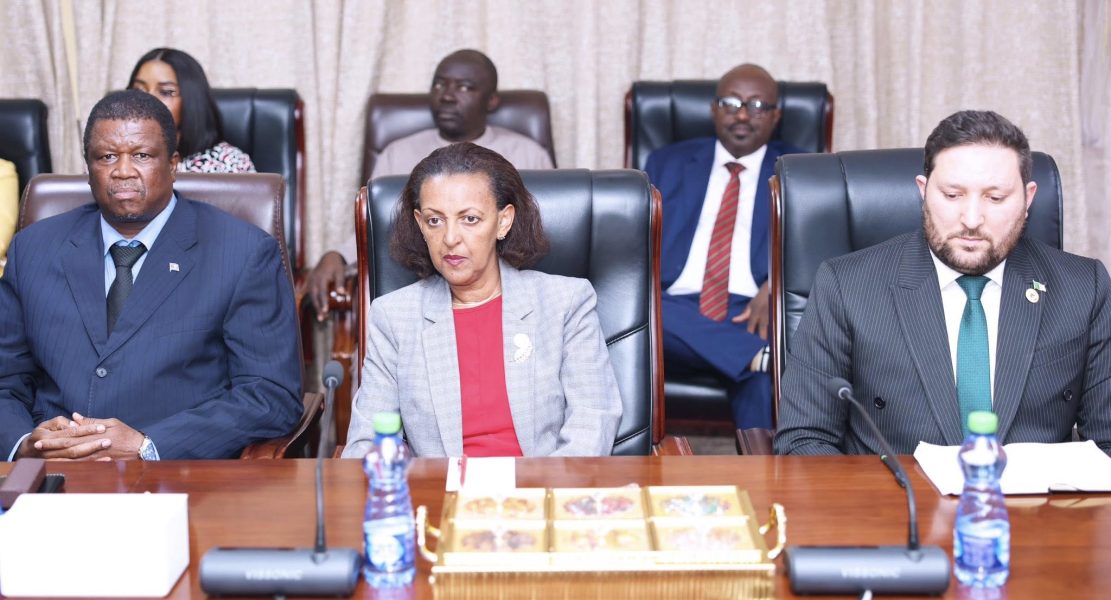
The African Union (AU) Peace and Security Council (PSC) has called for an inclusive, high-level political dialogue leaders in South Sudan to resolve the ongoing political stalemate.
The call was made following a three-day visit to Juba from August 10-12, 2025, intended to show solidarity with South Sudanese and reaffirm the AU’s commitment to supporting the country’s transition period.
Comprising representatives from 15 member states, the PSC stressed the need for full implementation of the remaining provisions of the Revitalized Agreement on Resolution of Conflict in South Sudan (R-ARCSS).
In a statement issued at the end of the visit, the council stated that it is important to observe the permanent ceasefire and the protection of civilians and humanitarian workers.
The PSC further reiterated its full support for the December 2026 elections, which are expected to end the current transitional phase.
Led by Ambassador Dr. Mohamed Khaled, the PSC delegation met with various stakeholders in Juba.
They met with President Salva Kiir Mayardit, the Chairpersons of the National Election and National Constitutional Review Committees, civil society organizations, faith-based groups, and international partners such as the United States, the United Kingdom, Norway, and the European Union.
According to the statement, discussions with President Kiir focused on the progress of the peace agreement’s implementation and the upcoming elections.
The PSC praised the government’s commitment to completing the transition process, while also highlighting the need for greater cooperation among political leaders.
Responding to the PSC’s call, Mr. Edmund Yakani, Executive Director of the Community Empowerment for Progress Organization (CEPO), praised the recommendation for high-level inclusive political dialogue.
Yakani described it as a reasonable and essential step to revive commitment to the R-ARCSS.
He announced that CEPO, with the support of various partners, will facilitate dialogues among the 13 signatory stakeholders of the agreement.
The dialogue, which Yakani says is the first of its kind, is meant to promote constructive engagement and enhance discussions on the peace agreement’s status.
The fate of the 2018 peace agreement is now at a critical juncture, particularly following the arrest of Dr. Riek Machar, the leader of the SPLM-IO and a key signatory to the agreement.
Dr. Machar has been under house arrest since March 26 for what the government said was his alleged involvement in violence in Nasir County, Upper Nile state.
However, his supporters and members of the SPLM-IO have consistently denied the allegation, labeling his detention as politically motivated.
Although the R-ARCSS mandates that elections be held after the transitional period, which has been extended to December 2026, the country faces multiple challenges.
Ongoing political instability, inadequate infrastructure, and limited resources continue to pose substantial obstacles to the success of the elections in December 2026.

